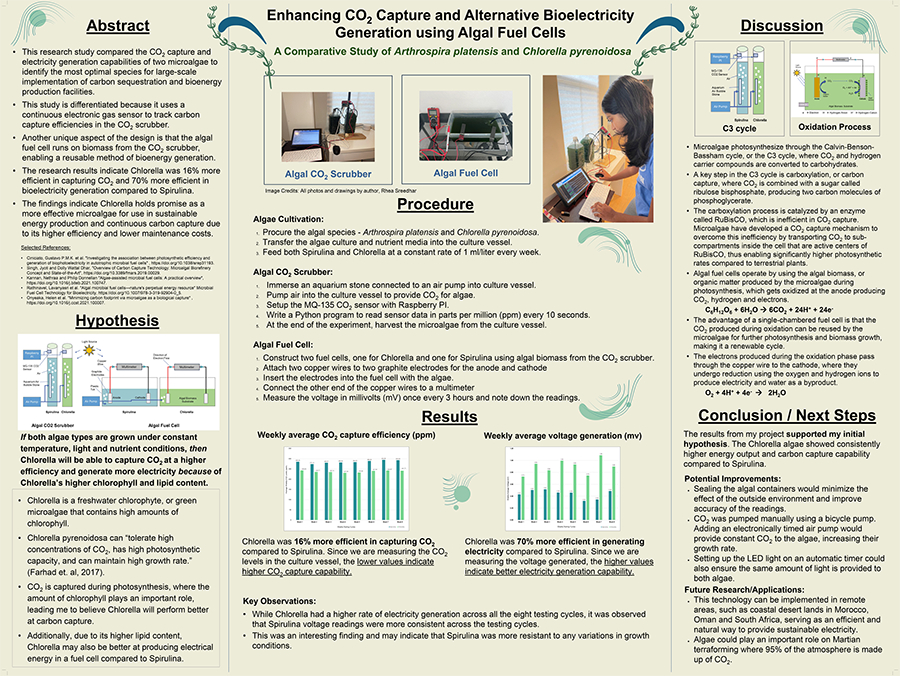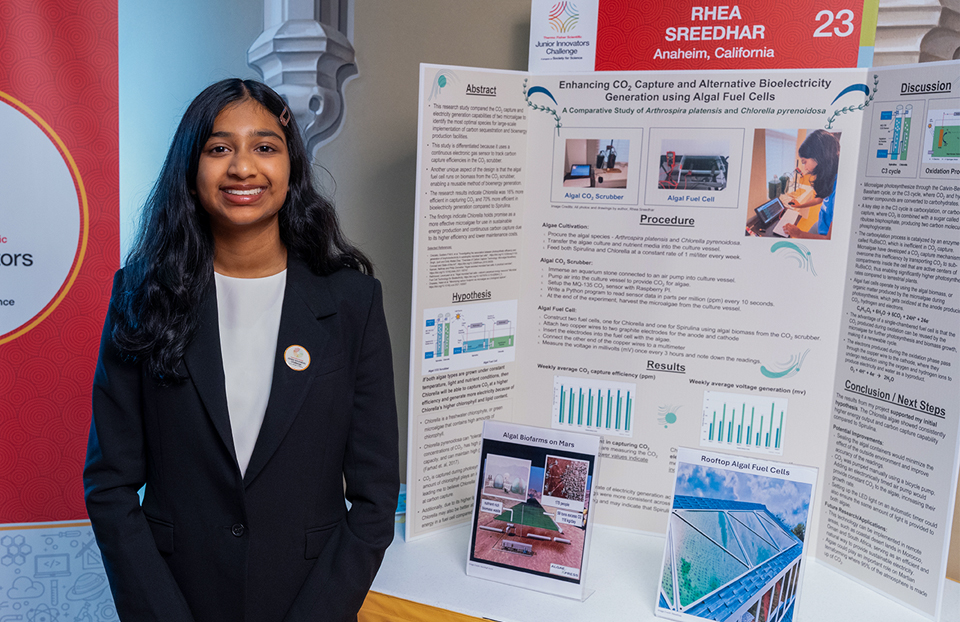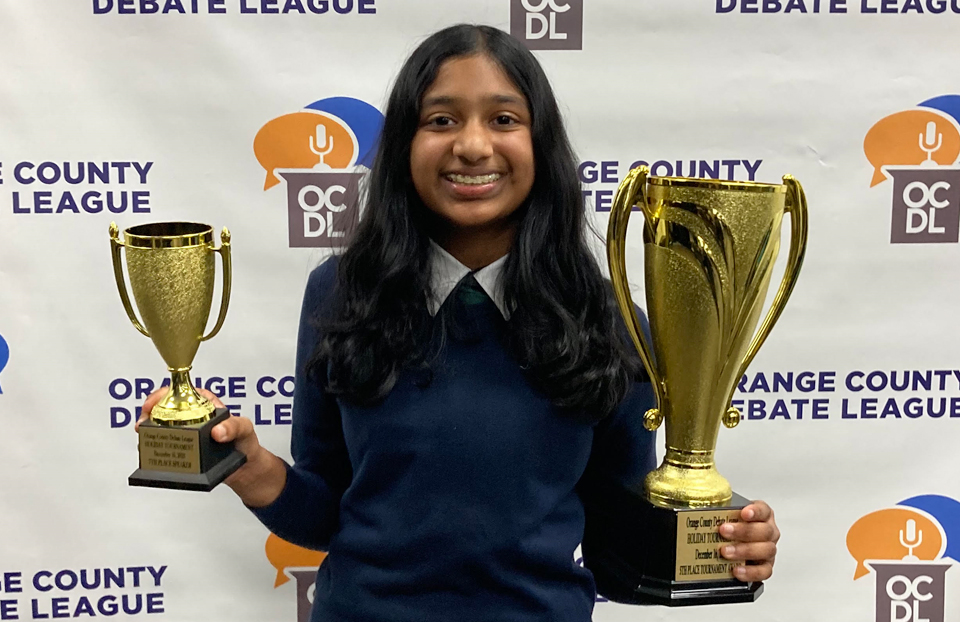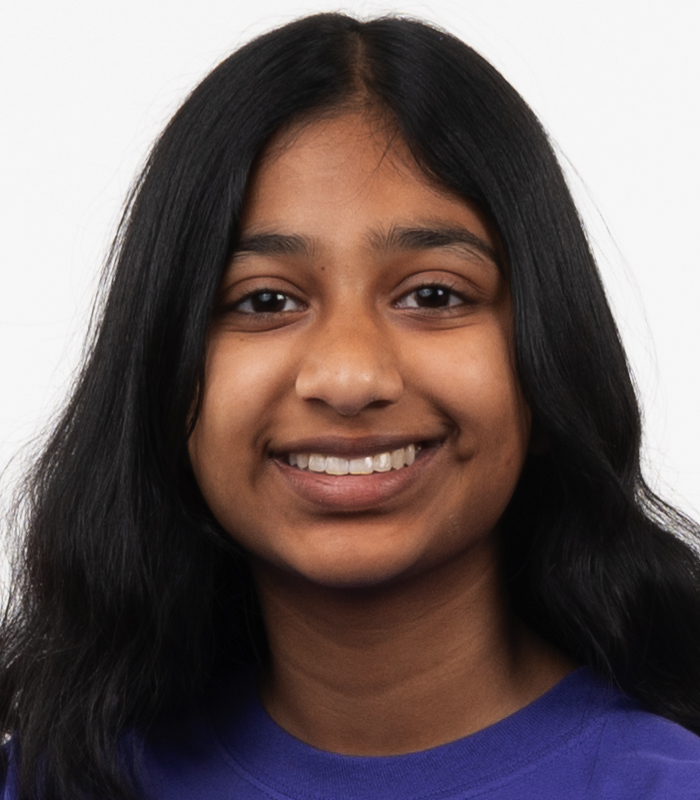Rhea Sreedhar
8th Grade, Fairmont Private School – Anaheim Hills Campus
Anaheim, CA
Rhea’s home state of California “is experiencing droughts, record temperatures and atmospheric rivers that make the issue of climate change very real and urgent for me,” she says. Rhea became interested in carbon capture, using algae to absorb carbon dioxide (CO₂) through photosynthesis. Those algae can then be grown in a fuel cell, which can produce electricity. “While a few papers described the working of an algal fuel cell, there were no findings on the most efficient algae species for this purpose,” she says. “I decided to identify two most photosynthetically active algae and test their effectiveness in CO₂ capture and electricity generation.”
Earth to Mars: Algal Fuel Cells for CO₂ Capture and Electricity Generation
View Poster
Project Background
Rhea compared two species of algae, Spirulina and Chlorella. She created a carbon dioxide scrubber — a vessel of each species of algae — and used a Raspberry Pi to detect how much CO₂ the two species drew out of the air over the course of a week. She also built an algal fuel cell with the two species, measuring the electrical output every three hours for a week.
Rhea showed that Chlorella sucked up 16 percent more carbon dioxide than Spirulina. When the two species were in fuel cells, Chlorella produced 70 percent more electricity. Algae like this, she says, could support long-term Mars missions, providing electricity and helping to recycle air. On Earth, she’d like to build a single self-contained unit that could absorb CO₂ and produce electricity. “My goal would be to have these units installed in people’s gardens or roofs to reduce their carbon footprint,” she says.

Beyond the Project
Rhea volunteers every Saturday at her local Hindu temple, preparing offerings and garlands for celebrations. “I enjoy bonding with my community and want to continue assisting them to preserve our long-lasting traditions,” she says. She is a dedicated Girl Scout, volunteers weekly at a food drive for the homeless and is captain of her debate team. Inspired by her own eyesight, she’d like to become an optometrist.

